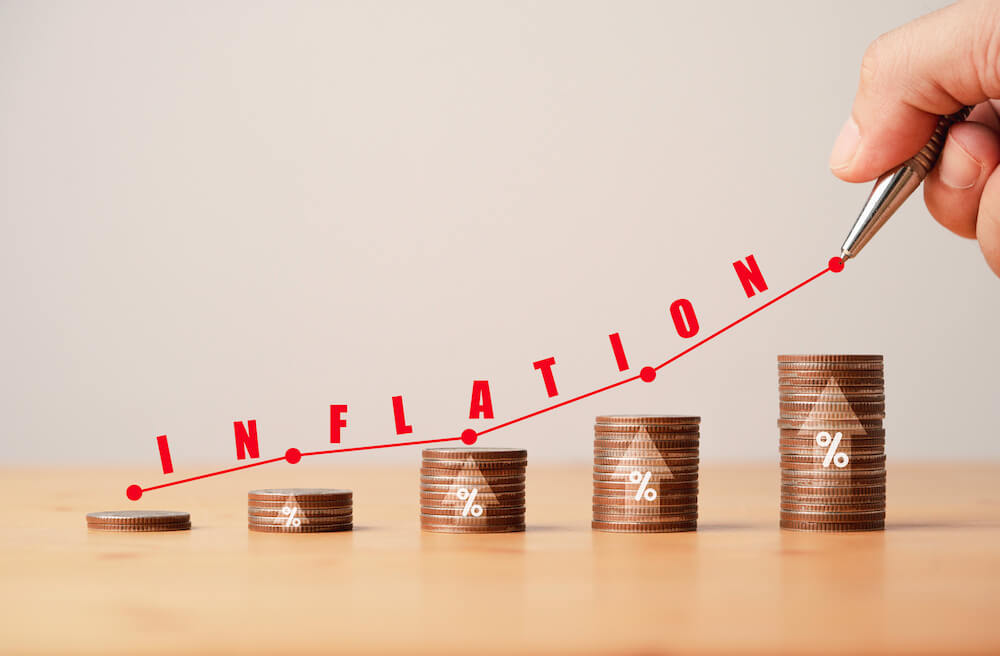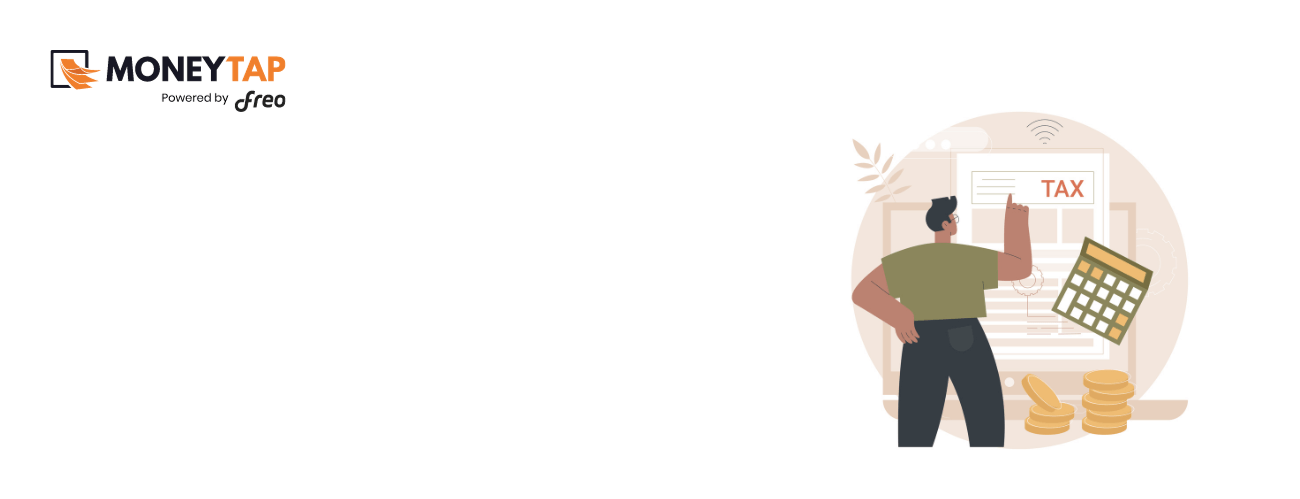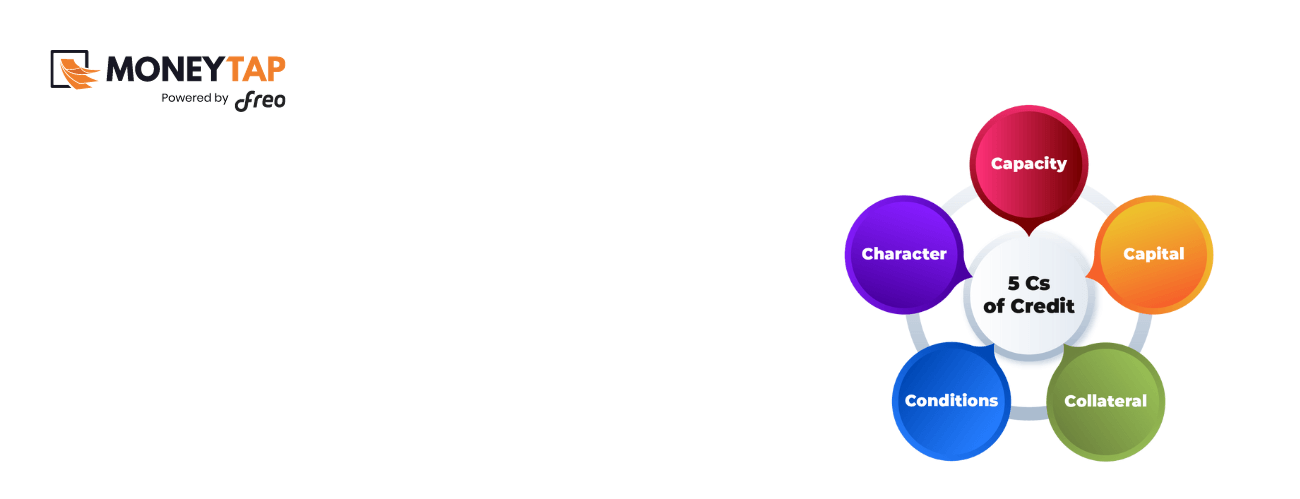Topic
- Around India with MoneyTap 1
- Consumer Durable 1
- Credit Cards 32
- Credit Score 27
- Finance 33
- General 52
- Know MoneyTap Better 26
- MoneyTap 50
- MoneyTap in Daily Life 38
- Personal Loan 86
- Shopping on EMI 4
- Wedding Loan 1
Inflation is a term commonly thrown around in economic discussions, but its implications for personal finances are often overlooked. Simply put, inflation signifies a general increase in the prices of goods and services over time, resulting in a decline in the purchasing power of money. This blog aims to demystify the impact of inflation on personal finances and provide actionable strategies to mitigate its effects. Without waiting further, let’s dive in.
Inflation’s Impact on Personal Finances
-
Decreased Purchasing Power
Inflation essentially boils down to the idea that your money doesn’t stretch as much as it once did. With time, the same amount of money can purchase fewer goods and services. In everyday terms, this results in individuals requiring more money to uphold their existing standard of living. To put it into perspective, if inflation is at 5% and your income stays the same, you’d have to come up with an extra 5% just to cover the cost of the same set of goods and services as the year before.
-
Increased Costs
Inflation hits home in everyday expenses. Basic necessities like food, housing, and transportation become more expensive, demanding a larger chunk of your income to cover these essential expenses. Budgeting becomes challenging as the cost of living rises, making it harder to save for future goals.
-
Reduced Savings and Investments
Traditional savings accounts and low-yield investments may fail to keep up with inflation, decreasing the real value of savings over time. For instance, a Rs. 10,000 savings account with a 6% annual interest rate won’t shield your purchasing power if the inflation rate is 10%. To combat this, diversifying investments and exploring higher-yield options becomes crucial to outpace inflation.
-
Impact on Debt
Inflation isn’t always a downer. If you took out a loan with a fixed interest rate, inflation can be a good thing for you. As prices and wages climb, the real value of your debt shrinks. So, even though you still owe the same amount, it’s like you owe less because everything costs more now. But keep in mind, this is more of a win for people with fixed-rate loans rather than variable-rate ones, especially when considering loan interest rates.
-
Housing and Loan Affordability
Inflation doesn’t just stop at affecting prices; it sends ripples through the housing market as well. As the overall cost of living goes up, the prices of houses and real estate follow suit. This creates hurdles for those aiming to step into the housing market or enhance their current living situation. Moreover, if inflation triggers a surge in interest rates, loans become pricier, potentially restricting borrowing possibilities or inflating the costs associated with existing loans.
-
Retirement Planning
The impact of inflation on retirement planning is profound. As prices rise, the same retirement fund will buy fewer goods and services, making it difficult to maintain one’s standard of living in retirement. To counter this, diversified investments in stocks, bonds, and other assets that can provide returns higher than inflation become crucial for long-term financial stability.
-
Government Response
Government policies play a role in influencing inflation. Central banks may raise interest rates to combat inflation, resulting in higher borrowing costs for individuals and businesses. Policies such as price controls can lead to shortages of goods and services, negatively impacting the economy and individual finances.
Shielding Your Finances from Inflation’s Effects
While individuals cannot directly control inflation, they can take proactive steps to reduce its impact on personal finances:
-
Invest Wisely
Diversify investments and explore options that offer returns higher than the inflation rate. Consider stocks, bonds, or real estate to protect your portfolio against the erosive effects of inflation.
-
Budgeting
Develop a budget that considers inflation and adjusts spending habits accordingly. Focus on essential expenses and avoid unnecessary purchases to maintain financial stability.
-
Save and Invest in Tax-Advantaged Accounts
Contribute to retirement accounts, which not only provide tax advantages but also offer potential growth to counteract the effects of inflation on your savings.
-
Stay Informed
Keep up-to-date with economic trends, inflation rates, and government policies that may impact personal finances. Informed decision-making and adjustments to financial strategies can help navigate the challenges posed by inflation.
Knowing how inflation affects your money is crucial for staying financially strong. When you realize that your purchasing power can drop, costs may rise, and your savings might lose value, you can take smart steps to protect yourself. This could involve investing wisely, planning your budget strategically, and keeping up with economic trends. In a world where the economy is always shifting, being flexible and making informed choices are key to staying financially secure, especially when dealing with the challenges of inflation.








 Get it on playstore
Get it on playstore Get it on appstore
Get it on appstore